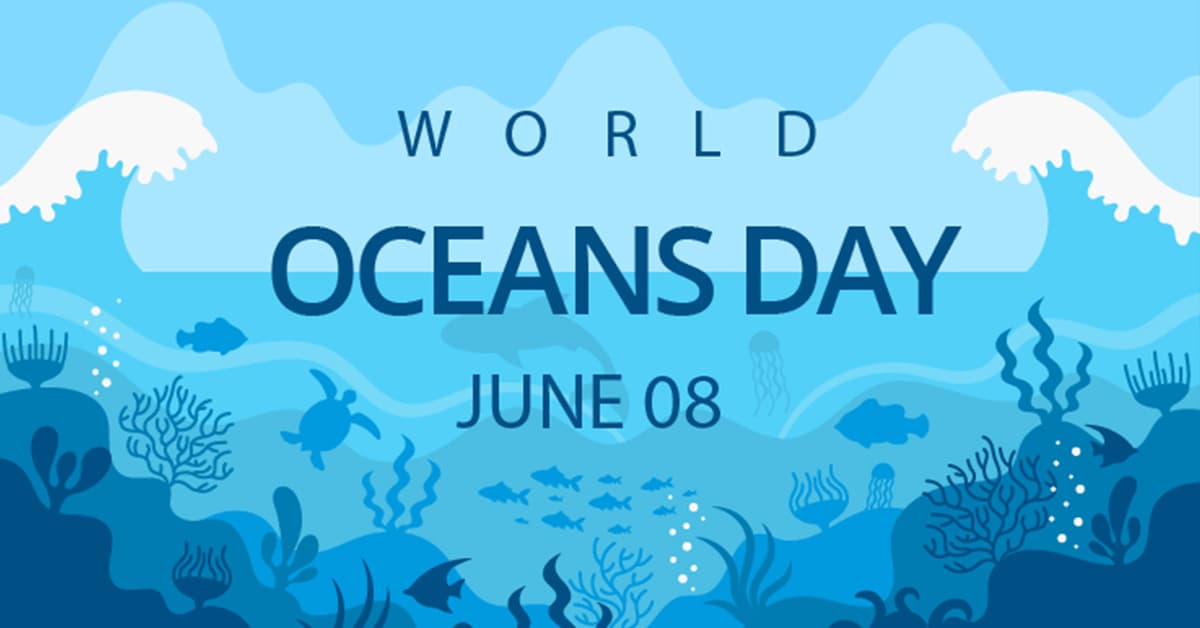2018 was the year earth’s oceans officially made the global stage. The world’s oceans covers 6.5% of the earth’s surface and is home to 40% of the world’s population. In light of this, Ocean Day, which is held on 5 July every year, has gained global prominence and recognition.
The theme of this year’s edition — ‘A day to remember the marine environment’ — calls for a renewed focus on our relationship with the sea. This is because oceans today are facing unprecedented pressures that are threatening their stability, abundance, and resiliency. We need to work together to protect them and restore their health so they can continue to support us in our efforts towards a more liveable planet.
Table of Contents
ToggleWhat is the marine environment?
The marine environment is the ecosystem that exists within a coastal area, river mouth, or other marine or riverine habitats. The marine environment can be subdivided into five main habitats: marine, estuarine, coastal, microbenthic, and aquatic ecosystems. Marine ecosystems are special because they are the most diverse and because of this they are also the most threatened.
Why is Ocean Day important?
The health of our oceans is essential to human survival. The marine environment, or ocean as many us call it, provides us with essential resources such as water, energy, protein, food, and clean air. It also provides coastal communities with critical services such as trade, tourism, and transportation. However, without a healthy ocean we cannot have a healthy coast. As coastal areas become more populated, pollution, agricultural run-off, and climate change will increasingly impact marine ecosystems.
What can we do to protect the ocean?
Many of the ways we protect our forests, mountains, and other terrestrial environments have been applied to the aquatic environment. Therefore, it is important to protect both terrestrial and marine environments.
These include: –
- Maintain a diverse and balanced ecological environment within national boundaries .
- Adopt principles of sustainable use of resources where possible .
- Encourage the development of clean, efficient, and affordable energy sources .
- Ensure that traded resources are sustainably managed .
- Protect aquatic ecosystems through sustainable use of fisheries .
- Reduce pollution and ensure that domestic and international water resources are sustainably managed .
- Establish and maintain safe and efficient navigation in coastal and inland waters .
- Ensure that the species composition, structure, and function of wetlands and marine environments are sustainable .
- Protect critical ecosystems such as mangroves, coral reefs, and tropical wetlands .

7 ways to help restore the health of our oceans
Because of our growing relationship with the ocean, it is important to us that it continues to provide us with benefits. In order to ensure this, it is essential that we restore the oceans to their previous health. These are: –
- Reduce acidification
- Increase waters oxygenation
- Increase JavaScript functionality
- Improve water quality
- Maintain a healthy fisheries
- Control pollution and ensure that domestic and international water resources are sustainable .
- Improve global governance of our seas
6 tips for a greener Ocean Day
- Avoid conservative planning decisions that could decrease water resources. Put the environment and human health first.
- Ensure that development does not take place at the expense of the environment. Environmental justice is a key concern in development.
- Protect coastal ecosystems through sustainable use of fisheries. Sustainable use means using fisheries sustainably.
- Adopt a zero tolerance policy towards plastic pollution. The world has a zero tolerance policy towards wildlife Poaching, slash-and-burn cultivation, and littering have all been linked to increases in plastic pollution.
- Invest in research and development to discover sustainable technologies for water and energy. This includes researching and developing low-cost, clean and safe ways of purifying water.
- Celebrate Ocean Day with a Green Tide Festival in your city. The Green Tide Festival is a global celebration of the ocean that takes place annually in Durban, South Africa.
2 solutions looking to tackle plastic pollution
Plastic pollution is a major environmental issue and a serious threat to our marine environments. It has been estimated that more than 1.8 million metric tons of plastic waste is generated annually, of which 1.1 million tons are disposable plastic bags and 821,000 metric tons are plastic bottles. The root of the plastic pollution problem is human activities such as the production of commodities, consumption, and waste disposal. We need to reduce the demand for commodities and produce less waste. – Control the flow of materials and energy through the environment. The flow of materials and energy can be reduced through design. – Encourage the use of sustainable coastal and marine practices. These practices will reduce the overall demand for resources and the generation of waste.
Conclusion
Despite advances in technology and scientific understanding, the environmental challenges facing the ocean remain significant. Properly protecting our marine environment is essential in order to ensure that future generations have a healthy, sustainable source of marine protein. Our relationship with the sea is an important one, and today more than ever, we need to take care of it. The marine environment is home to diverse ecosystems, including coral reefs, fisheries, and marine mammals. It is also the source of nearly all the planet’s clean water and provides essential services to the entire human food chain. It is therefore essential that we protect it.





